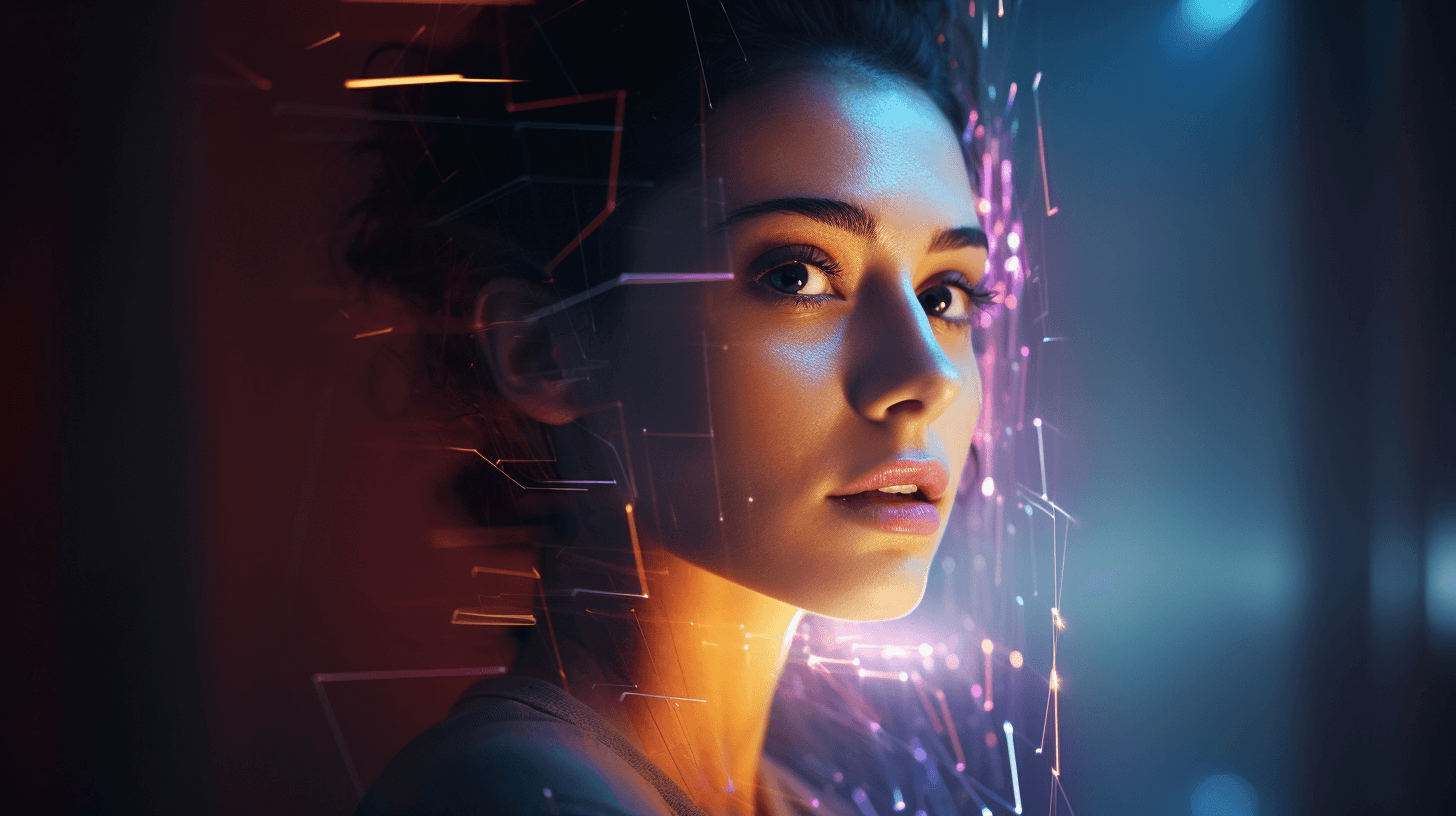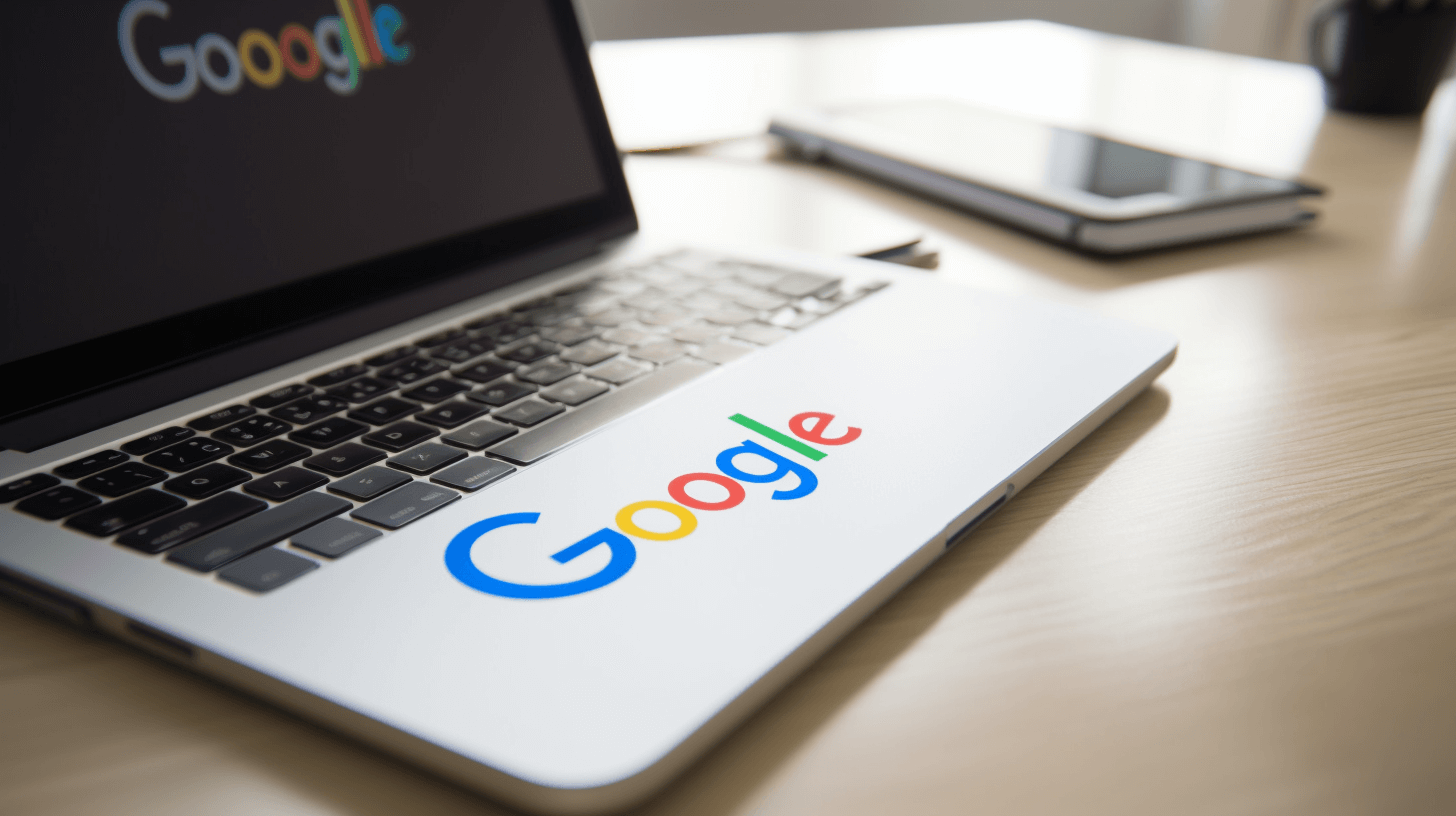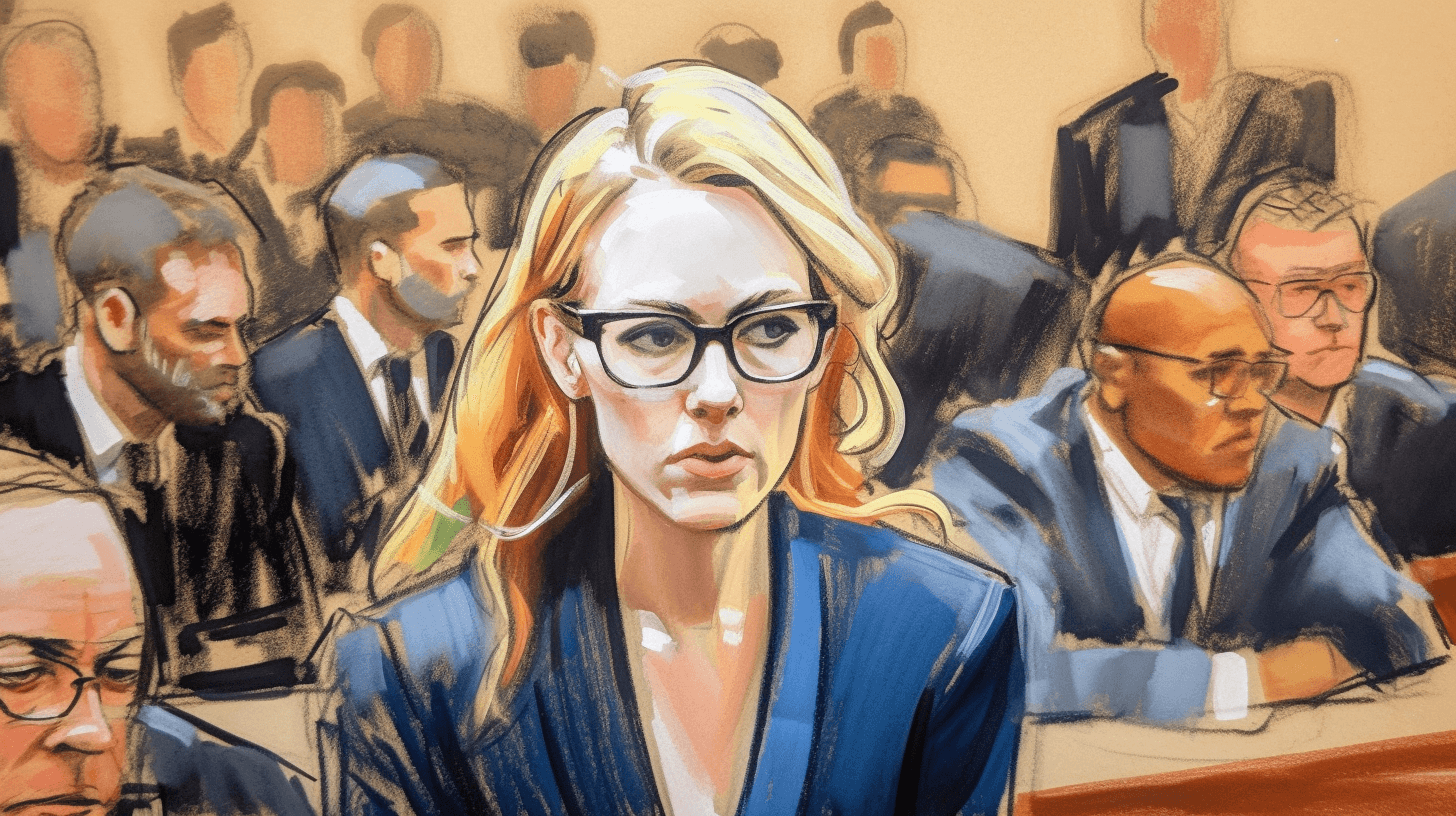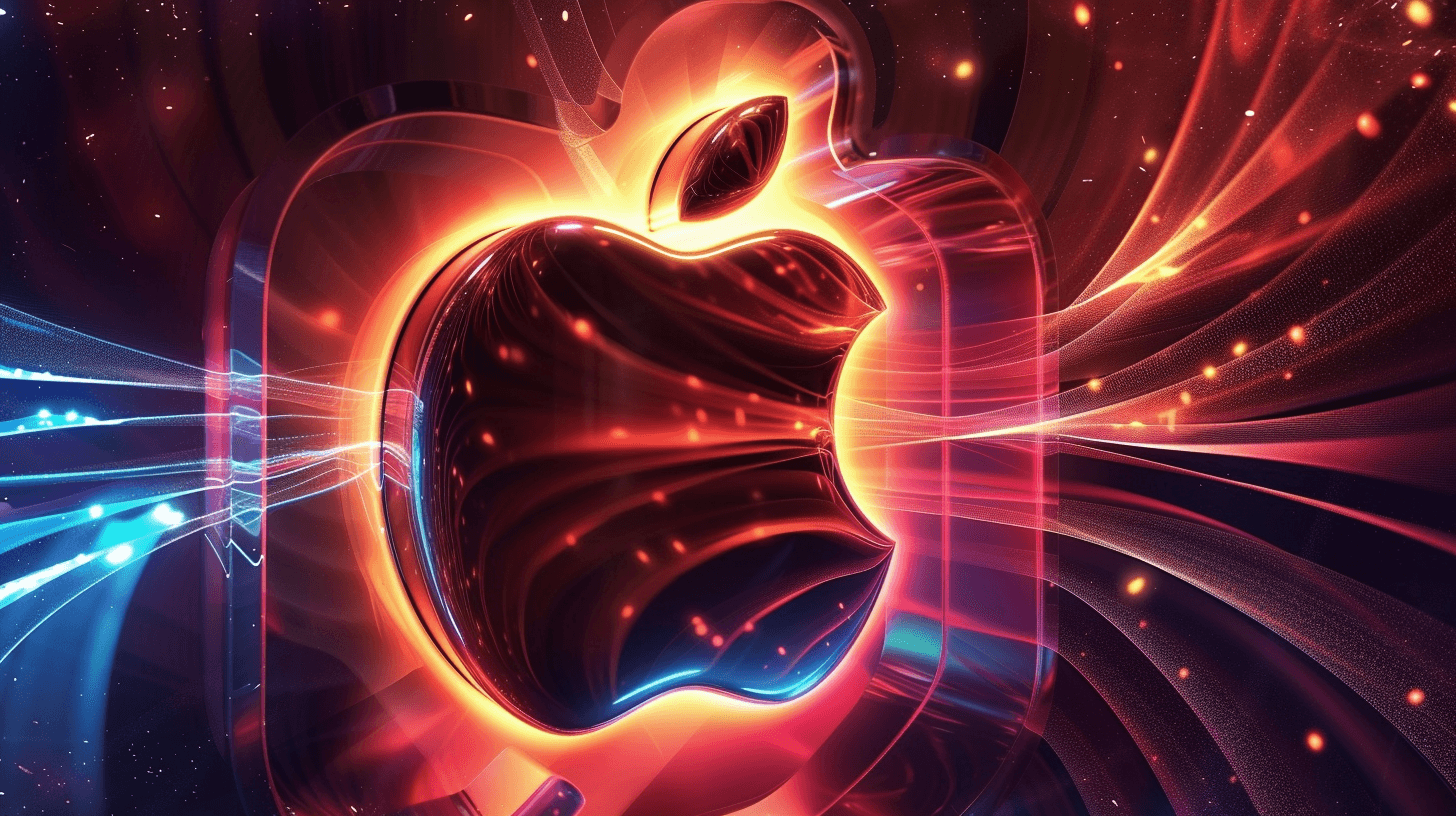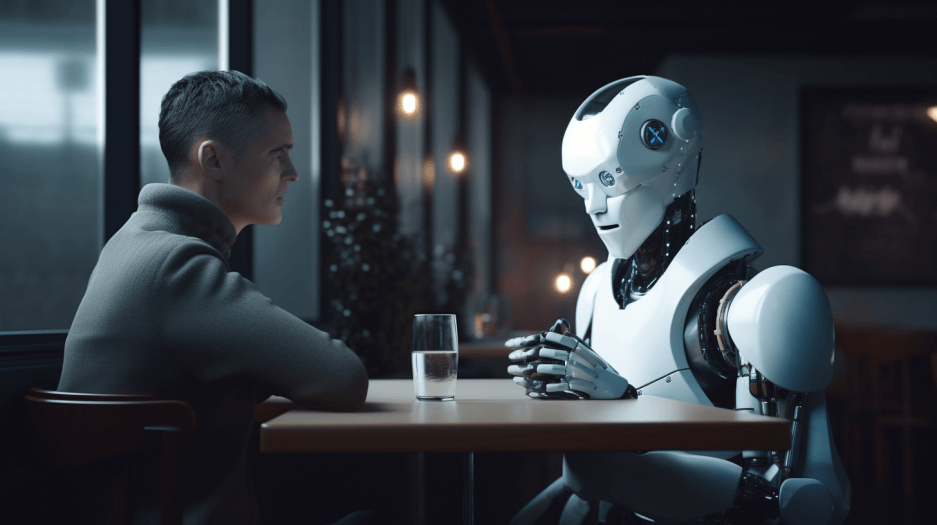🛒👤🚫 Barred From Grocery Stores by Facial Recognition
⬇️ Pidgin | ⬇️ ⬇️ English
British merchants stay using da facial recognition technology mo’ an’ mo’ fo’ fight back against shoplifting, but plenny peeps stay wondering ’bout how much it spreading as artificial intelligence stay getting betta. Simon Mackenzie, one security officer at QD Stores, one discount retailer outside London, was breathing hard. He had jus’ chased down three shoplifters who wen steal plenny packages of laundry soap. Before da police showed up, he sat at one back-room desk fo’ do someting important: Take pictures of da culprits’ faces. 🏃♂️📸💨
On one old computer, he pulled up da security camera footage, pau fo’ zoom in an’ save one photo of each thief. Den he wen log in to Facewatch, one facial recognition program dat da store use fo’ identify shoplifters. Anytime dose people go into any oddah shop nearby dat use Facewatch, da store staff go get one alert. 👥🔍📱
“Like get somebody right dea wit’ you saying, ‘Da person you catch las’ week stay back,'” Mr. Mackenzie said. 💭👥🔊
Police use facial recognition technology been get plenny attention lately, but not so much when private businesses use ’em. But now, as da technology getting betta an’ cheaper, mo’ places stay using ’em. Not jus’ da government, but even private businesses stay using facial recognition fo’ identify shoplifters, troublesome customers, an’ people dey get legal beef wit’. 🕵️♂️💼
Facewatch, one British company, stay get used by plenny retailers ’round da country who stay fed up wit’ small-kine crimes. Fo’ as low as 250 pounds each month, dey can get access to one customized watchlist dat all da stores near each oddah can share. When Facewatch spot one flagged face, da store staff go get one alert on deir smartphones, an’ dey can decide if dey goin’ keep close watch on da person or ask ’em fo’ leave. 💷📋📱
Mr. Mackenzie stay adding one or two new faces to da watchlist every week. Most of ’em stay people who steal diapers, groceries, pet supplies, an’ oddah cheap stuff. He say he feel bad fo’ ’em ’cause dey probably stay struggling financially, but da number of thefts wen get outta control, so dey had fo’ use facial recognition. Almost every day, Facewatch alert him when somebody from da watchlist go into da store. 📉🤳🚫
Facial recognition technology stay spreading as countries in da West trying fo’ deal wit’ advancements in artificial intelligence. Da European Union stay making rules fo’ ban some uses of facial recognition, while Eric Adams, da mayor of New York City, stay telling retailers fo’ give ’em one try fo’ fight against crime. MSG Entertainment, da company dat own Madison Square Garden an’ Radio City Music Hall, stay using automated facial recognition fo’ stop lawyers from law firms dat wen sue da company from entering. 👥🚔🏛️
Among democratic nations, Britain stay leading da way when it comes to live facial recognition. Courts an’ regulators stay approving its use. Da police in London an’ Cardiff stay experimenting wit’ da technology fo’ identify criminals dat dey looking fo’ as dey walk on da streets. In May, dey wen use it fo’ scan da crowds at King Charles III’s coronation. 🇬🇧🚔🤖
But da use of facial recognition by retailers stay get criticized as one big solution fo’ small crimes. People no get much way fo’ know if dey on da watchlist or how fo’ fight back. Big Brother Watch, one group dat support civil rights, even wen file one legal complaint last year, saying it stay “Orwellian to da max.” 🤐👥👀
Fraser Sampson, Britain’s commissioner fo’ biometrics an’ surveillance cameras, who give advice to da government, say peeps stay worried an’ hesitant ’bout facial recognition technology cuz dey concerned ’bout privacy an’ da past problems wit’ da algorithms dat run ’em. 💻🔍🙅♂️
“But I tink when it come to speed, size, accuracy, an’ cost, facial recognition technology can be one big game changer,” he say. “Dat mean da time wen come fo’ use it an’ deploy it probably no can be stopped. Is jus’ one mattah of when.” 📈💡🔄
Facewatch wen start in 2010 by Simon Gordon, da owner of one popular 19th-century wine bar in central London dat stay famous fo’ da way it look like one cellar an’ how much pickpockets love go dea. At da time, Mr. Gordon wen hire software developers fo’ make one online tool dat can help da authorities by sharing security camera footage, so dey no need spend time filling out incident reports an’ can make mo’ arrests. But not too many peeps wen show interest. Still, Mr. Gordon stay real interested in security technology. He wen follow da developments in facial recognition an’ come up wit’ da idea fo’ one watchlist dat retailers can share an’ add to. It’s like da photos of shoplifters dat stores keep right next to da cash register, but way mo’ powerful, cuz all da photos stay in one big database dat can catch da bad guys in real time. 👥💭💻
By 2018, Mr. Gordon wen feel like da technology stay ready fo’ get used in business. 💼💡
“You gotta take action fo’ help yourself,” he wen say in one interview. “You no can just wait fo’ da police.” 🚔🤷♂️
Facewatch stay using facial recognition software made by Real Networks an’ Amazon, an’ now da system stay in almost 400 stores all ova Britain. Da systems wen learn from millions of pictures an’ videos, an’ now dey can read da biometric info of one person’s face when dey walk into one shop an’ check if dey on da database of flagged people. 📷🤖🇬🇧
“Sometimes get mistakes, but not too often” 😬❌
Every time Facewatch’s system identify one shoplifter, one notification go out to one “super recognizer” – one person who get special talent fo’ remember faces an’ pass one test fo’ work as one “super recognizer.” In just a few seconds, da super recognizer gotta confirm if da match is right by comparing da face to da Facewatch database. Only aftah dat, da alert go out. But even wit’ all da policies Facewatch wen put in place fo’ prevent mistakes an’ oddah errors, mistakes still happen sometimes. 😮🔎👤
In October, one woman was buying milk at one supermarket in Bristol, England, when one employee confronted her an’ told her fo’ leave. She was told dat Facewatch wen flag her as one shoplifter dat not allowed in da store. But da woman, who no like reveal her name fo’ privacy reasons, an’ whose story got confirmed by her lawyer an’ Facewatch, say dey must have made one mistake. When she wen contact Facewatch few days latah, da company wen apologize an’ say dey wen make one mistake in identifying her. 🥛🚫🔍
Aftah da woman wen threaten fo’ take legal action, Facewatch wen dig through deir records an’ find out dat dey wen add her to da watchlist because of one incident dat happened 10 months earlier. She wen take about £20 worth of stuff, but da woman say she no even remember dat incident an’ she no nevah steal. She say maybe she wen walk out without realizing her debit card wen get declined when she tried fo’ pay at da self-checkout. 🧾🛒🤷♀️
Madeleine Stone, one officer fo’ legal an’ policy at Big Brother Watch, say Facewatch stay making “airport-style security checks” fo’ everyday activities like buying milk. 🛫🥛
Mr. Gordon wen no like comment on da incident in Bristol. He say “mistakes happen sometimes, but no too often.” He add, “If we make mistake, we go admit ’em, apologize, delete any relevant data fo’ make sure no happen again, an’ offer appropriate compensation.” 💬🙏❌
Civil rights groups stay worried ’bout Facewatch an’ say da use of facial recognition technology fo’ fight small crimes might even be against British privacy laws, cuz da law say dat biometric technology gotta serve one “substantial public interest.” 🕵️♀️🔒
Da U.K. Information Commissioner’s Office, which stay responsible fo’ privacy, wen do one yearlong investigation on Facewatch. In March, da office wen say dat Facewatch system stay legal, but only aftah Facewatch wen make some changes to how dey operate. Stephen Bonner, da office’s deputy commissioner fo’ regulatory supervision, say one investigation wen make Facewatch change deir policies: Dey go put up mo’ signs in stores, only share info ’bout serious an’ violent criminals among stores, an’ only send out alerts ’bout repeat offenders. So, no mo’ adding people to da watchlist aftah jus’ one minor offense, like what happened to da woman in Bristol. He say, “Dat go reduce da amount of personal data dat stay held, reduce da chances of unfairly adding people to da list, an’ make it more accurate.” He say da technology not dat different from having really good security guards. 👮♂️🔒💼
Liam Ardern, da operations manager fo’ Lawrence Hunt, one company dat own 23 Spar convenience stores dat use Facewatch, say da risks to privacy from facial recognition stay blown outta proportion. He say da only time he recall one mistake was when one man got confused fo’ his identical twin brother, who stay one shoplifter. He say people no realize how small da profit margins stay fo’ stores like his. He say, “Easy fo’ them fo’ say, ‘No, dat against human rights.’ If shoplifting no go down, we go have fo’ raise prices o’ cut staff.” 💸🛒🚫
NOW IN ENGLISH
🚫🛒📸 No More Enter Grocery Stores, Da Facial Recognition Stay Barred
British shop owners stay starting fo’ use dis technology mo’ an’ mo’ fo’ fight against pilferage, raising concerns ’bout how much it spreading as da artificial intelligence stay getting betta. Simon Mackenzie, one security officer at QD Stores, one discount retailer outside London, stay outta breath. He wen jus’ run aftah three shoplifters who wen take off wit’ bags an’ bags of laundry soap. Befo’ da police came, he wen sit at one desk in da back room fo’ do someting important: Capture da faces of da culprits. 🏃♂️💨🛍️💼📸
On one old desktop computer, he wen open up da footage from da security cameras, pau to zoom in an’ save one photo of each thief. Den, he wen log in to Facewatch, one facial recognition program dat da store use fo’ identify shoplifters. Da next time any of dem people go inside any oddah shop nearby dat use Facewatch, da staff go get one alert. 🖥️🔎👥🚨
“Stay like get one person wit’ you saying, ‘Da person you caught last week stay back,'” Mr. Mackenzie said. 👥📣
While da police stay under heavy scrutiny fo’ using facial recognition technology, not too much attention stay given to how private businesses stay using it. Now, as da technology stay improving an’ da cost stay dropping, it stay reaching deeper into people’s lives. No mo’ limited to government agencies, facial recognition stay getting deployed mo’ an’ mo’ to identify shoplifters, troublesome customers, an’ legal opponents. Facewatch, one British company, stay used by retailers all ova da country who stay fed up wit’ small-time crime. Fo’ as low as 250 pounds a month, dey can access one customized watchlist dat get shared among nearby stores. When Facewatch spots one flagged face, da shop go get one alert sent to da smartphone, an’ da employees go decide whether fo’ keep one close eye on da person o’ tell ’em fo’ leave. 💷💻👥🔍
Mr. Mackenzie stay addin’ one o’ two new faces every week, mainly people who steal diapers, groceries, pet supplies, an’ oddah low-cost items. He say he feel sympathy fo’ dey economic struggles, but da number of thefts wen reach one point where dey had fo’ use facial recognition. Almost every day, Facewatch alerts him dat somebody from da watchlist stay enterin’ da store. 🧻🍼🛒🤔
Facial recognition technology stay spreading as Western countries stay grappling wit’ da advancements brought by artificial intelligence. Da European Union stay draftin’ rules dat go ban many uses of facial recognition, while da mayor of New York City, Eric Adams, stay encouragin’ retailers fo’ give da technology one try fo’ fight crime. MSG Entertainment, da company dat own Madison Square Garden an’ Radio City Music Hall, stay even usin’ automated facial recognition fo’ refuse entry to lawyers whose firms wen sue dem. 👥📝🇪🇺🗽
Among democratic countries, Britain stay at da forefront of usin’ live facial recognition. Courts an’ regulators stay givin’ deir approval. In London an’ Cardiff, da police stay experimentin’ wit’ da technology fo’ identify wanted criminals as dey walk down da street. In May, it stay used fo’ scan da crowds at King Charles III’s coronation. 🇬🇧👑📸
However, da use of facial recognition by retailers stay gettin’ criticism as one disproportionate solution fo’ minor crimes. Individuals get limited knowledge of bein’ on da watchlist an’ limited means fo’ appeal. Last year, Big Brother Watch, one civil society group, made one legal complaint callin’ it “extremely Orwellian.” 👥🚫👁️
Fraser Sampson, Britain’s commissioner fo’ biometrics an’ surveillance cameras, who advise da government on policy, say people stay “nervous an’ hesitant” ’bout facial recognition technology cuz of privacy concerns an’ past issues wit’ poorly performin’ algorithms. But he believe dat facial recognition technology can be one game changer in terms of speed, accuracy, an’ cost. He say its arrival an’ deployment stay inevitable, it’s jus’ a mattah of time. 🤖🔒💼
Facewatch stay founded in 2010 by Simon Gordon, da owner of one popular 19th-century wine bar in central London known fo’ its cellar-like interior an’ popularity among pickpockets. At da time, Mr. Gordon wen hire software developers fo’ create one online tool fo’ share security camera footage wit’ authorities. He hope dis would save da police time fillin’ incident reports an’ result in more arrests. But not much interest wen come, yet Mr. Gordon stay fascinated wit’ security technology. He stay keepin’ up wit’ da developments in facial recognition an’ came up wit’ da idea of one watchlist dat retailers could share an’ contribute to. It’s like da photos of shoplifters dat stores keep next to da cash register, but supercharged into one collective database fo’ identify da bad guys in real time. By 2018, Mr. Gordon felt dat da technology stay ready fo’ commercial use. 👥💻📸🍷
“You gotta help yourself,” he said in one interview. “You can’t expect da police fo’ come.” 💁♂️👮♂️🆘
Facewatch, which licenses facial recognition software made by Real Networks an’ Amazon, stay now installed in almost 400 stores all across Britain. Trained on millions of pictures an’ videos, da systems read da biometric information of one person’s face as dey walk into da shop an’ check it against one database of flagged individuals. Every time Facewatch system identify one shoplifter, one notification get sent to one “super recognizer” who pass one special test fo’ rememberin’ faces. Within seconds, da super recognizer gotta confirm da match against da Facewatch database before one alert get sent out. Although Facewatch made policies to prevent misidentification an’ oddah errors, mistakes still happen. In October, one woman buyin’ milk in one supermarket in Bristol, England, wen get confronted by one employee who tell her fo’ leave. She wen find out dat Facewatch had flagged her as one barred shoplifter. But she know dey wen make one mistake. When she contact Facewatch few days latah, da company wen apologize an’ admit dat dey made one case of mistaken identity. 🥛🙅♀️🚫🔍
Facewatch went look through dey records an’ find out dat dey wen add her to da watchlist cuz of one incident 10 months earlier where she wen take £20 worth of merchandise. Dey say dat da system “worked perfectly.” But even though da technology wen correctly identify her, it no leave much room fo’ human discretion. Neither Facewatch nor da store wen contact her fo’ let her know dat she stay on da watchlist an’ ask her what happened. Da woman say she no even remember da incident an’ she nevah shoplifted. She say maybe she wen walk out aftah not realizin’ dat her debit card payment wen fail at da self-checkout. Critics, like Madeleine Stone from Big Brother Watch, say dat Facewatch stay normalizin’ airport-style security checks fo’ everyday activities like buyin’ milk. Mr. Gordon wen decline commentin’ on da Bristol incident. He say mistakes are rare but can happen, an’ if dey do, Facewatch go acknowledge dem, apologize, delete relevant data, prevent it from happenin’ again, an’ offer appropriate compensation. 📝👥🛒🚫
Civil liberties groups stay raisin’ concerns ’bout Facewatch an’ suggestin’ dat its use to prevent minor crimes might be illegal undah British privacy law, which require dat biometric technologies gotta serve “substantial public interest.” Da U.K. Information Commissioner’s Office, da privacy regulator, wen conduct one yearlong investigation into Facewatch. In March, dey conclude dat Facewatch system stay permissible undah da law, but only aftah da company made changes to its operations. Stephen Bonner, da office’s deputy commissioner fo’ regulatory supervision, say in one interview dat da investigation wen lead Facewatch to change its policies. Dey go put up mo’ signage in stores, share information among stores only ’bout serious an’ violent offenders, an’ send out alerts only ’bout repeat offenders. Dis means people no go end up on da watchlist aftah one minor offense, like da woman in Bristol. He say dis gonna reduce da amount of personal data dat stay held, reduce da chances of individuals bein’ unfairly added to da list, an’ make it more likely fo’ be accurate. He say da technology is similar to havin’ very good security guards. Liam Ardern, da operations manager fo’ Lawrence Hunt, which own 23 Spar convenience stores dat use Facewatch, estimate dat da technology wen save da company mo’ than £50,000 since 2020. He say da privacy risks of facial recognition stay blown outta proportion. Da only example of misidentification dat he recall stay when one man wen get confused fo’ his identical twin who wen shoplift. He say critics overlook dat stores like his operate on thin profit margins. He say, “It’s easy fo’ dem to say, ‘No, it’s against human rights.'” If shopliftin’ no decrease, he say his shops go gotta raise prices o’ cut staff. 🚫🛍️👥💷
Facial recognition technology stay raisin’ concerns all ova da world as its use keep expandin’. It raise questions ’bout privacy, accuracy, an’ da potential fo’ misuse. While it can help in fightin’ crime, it also pose risks to civil liberties an’ personal freedom. Da debate gonna continue as countries, governments, an’ organizations try to find da right balance between security an’ privacy. 💻🔒🌐

